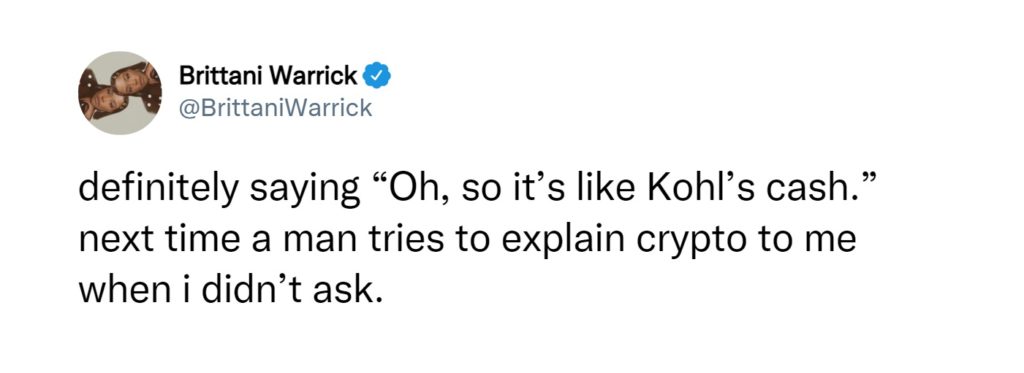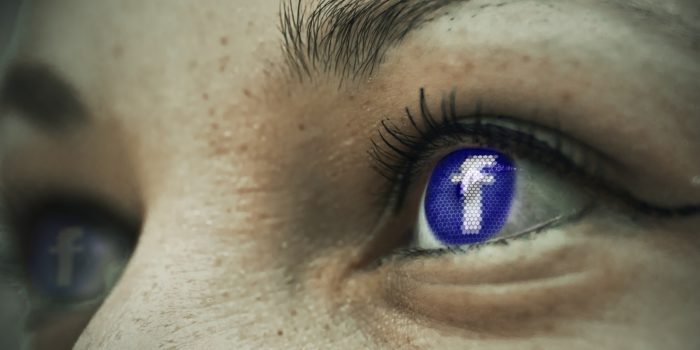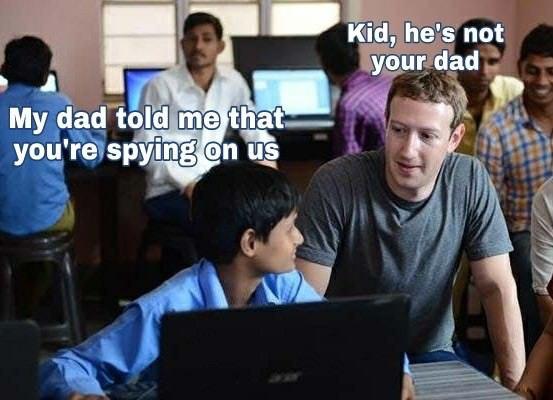1. Good Monday Morning
It’s November 1st. Election Day is tomorrow with statewide elections in Virginia, New Jersey, and Pennsylvania and plenty of municipal races and referendums across the country. This is one of Silver Beacon’s peak seasons. For the week that ended Friday, two of our clients made Facebook’s list of biggest social advocacy advertisers. Both reached the top 150 in spending. In one northern state, a client reached 70% of the eligible voter aged population and generated clicks from 12% of them.
Not sure what’s on your ballot? We love Ballotpedia, a nonpartisan site that will show you a sample ballot and official info about each candidate and question.
Today’s Spotlight is 1,611 words — about a 6 minute read.
2. News To Know Now
Quoted:“This recent activity is another indicator that Russia is trying to gain long-term, systematic access to a variety of points in the technology supply chain.” — Tom Burt, Microsoft VP of Customer Security and Trust after the company revealed that they tracked tens of thousands of attacks on more than 600 organizations between July and mid-October.
a) Amazon owns 20% of electric vehicle maker Rivian, according to an SEC filing that it made Friday. We wrote two years ago that Amazon had placed a $10 billion order with the company to acquire 100,000 electric powered trucks over 10 years. Rivian filed this summer to go public and is seeking an $80 billion valuation.
b) Amazon’s Alexa Smart Properties system is being integrated into hospitals and senior living communities, the company confirmed last week to The Verge. Approved callers can directly contact residents and staff can make notifications of changes to meals or medications without having to wear protective equipment or rely on papers left for the resident.
c) Conservative activists blasted British insurer John Lewis for the “Let Life Happen” ad we showed you two weeks ago featuring a young boy in makeup and a dress dancing around his house while inadvertently breaking things. UK regulatory officials late last week said that the ad is potentially misleading about the types of damage covered, and the company has pulled the spot from all media.
3. Search Engine News — Quality Content Explanations & Welcome News for Parents
As bad news about social media’s effect on children continues to make headlines, Google quickly darted into the fray and announced that a parent or guardian can now request that an image of their child be removed from Google Search.
Google’s Danny Sullivan, one of the originators of the search engine optimization concept, announced the change last week. He also reminded parents that this would only remove the image from Google, not the website on which the hosted image appears. As Danny pointed out, there are now processes to remove different content from Google, including some private information placed with an intention to harm or intimate photos posted without your consent.
We also had an interesting revelation from Google last week that elaborated about the company’s meaning when it talks about “the quality of the content.” Search Engine Journal transcribed search exec John Mueller’s weekly webinar, during which he said, ” … we don’t mean just the text of your articles. It’s really the quality of your overall website. And that includes everything from the layout to the design … how you have things presented on your pages, how you integrate images, how you work with speed.”
4. Spotlight Explainer — The No BS Tech Quarterly Earnings Explanations
Reporting around earnings calls has an annoying chaotic tone that is due in large part to very different levels of financial literacy. Many non financial people expect topical events to impact individual stocks more than they do because the investing community has already accounted for the chance of those events. Meanwhile, most business press is written from a much longer time perspective and already considers future metrics.
Your short headline for the Q3 tech earnings calls last week is that big tech is doing just fine.
Facebook revenue was $29 billion instead of $29
Most of the Facebook financial news was dominated by the corporate name change and a 2% revenue miss. Financial folks are also staggered that Facebook bought $14 billion worth of its own stock last quarter and announced plans for another $50 billion. This can artificially inflate the earnings-per-share metric, but the bottom line is that Facebook generated $322 million in daily revenue last quarter instead of $327 million. The other knock on Facebook was that its growth rate slowed because the company has about 3 billion monthly active users, and the planet only has so many people.
Bottom line for Facebook: The stock went up because Wall Street had already accounted for negative attention paid to its business practices. Regulatory proceedings take a notoriously long time.
Google continues diversifying
Google’s cloud business is only the third largest, but its quarterly revenue was $5 billion, a welcome sign for Alphabet. The company blasted through quarterly revenue and profit expectations, generating about $19 billion in profit for the quarter. Google ads, Android, and YouTube are pillars of Alphabet’s profit growth. A fourth pillar like Google Cloud is a big deal.
Bottom line for Google: They are big, getting much bigger, and like Facebook, are playing a long game with regulatory action that could take years to impact the company.
Amazon got helped by the pandemic and is now back to Earth.
Amazon missed financial expectations for profit and revenue while also saying that this quarter’s growth rate would decline. The company announced earlier this month that it would hire 150,000 holiday season workers. That’s 50% more than last year and equivalent to the population of Charleston, SC. Amazon hired 50,000 regular workers last year and is hiring 40,000 more now. Sum all the big numbers, and Amazon will have brought on 450,000 employees since the pandemic began. The company is understandably concerned about how shipping delays will hurt its performance this year.
Bottom line for Amazon: The company will hire more seasonal workers this year than its entire workforce size in 2014. Its net income was $11 billion in 2019 and more than $21 billion last year. Don’t shed a tear.
Apple is really, really worried about shipping delays.
After setting various records for its financial results, Apple reported quarterly profit of just over $20 billion, about even with Google. And like Google, services represent a growing percentage of profit, but at heart, Apple remains a device company with nearly 50% of its revenue coming the iPhone. Apple has also acknowledged that supply chain delays could decrease holiday sales and continue to drive its costs up.
Bottom line for Apple: Their devices remain highly sought after. Any bumps here are temporary. And their services revenue shows strong growth at the App Store, AppleCare, and AppleTV.
5. Did That Really Happen? — Do NOT Change Your Voice Mail If Lost
Experts say that viral posts suggesting that lost or stranded people change their voicemail greetings to include their location are wrong. Do not try to do this.
Nearly every large mobile company said that you would need to use a mobile signal to connect to their servers to change your greeting. Instead, call someone for help. Or, as more than one first responder department suggested, text them for help because that requires a fraction of the battery power. Snopes has more info.
6. Following Up — Whole Foods Delivery & the latest on Facebook Misinfo
We previously told you that Amazon’s Whole Foods would begin charging $9.95 for each delivery. The moment that started last week, Retail Wire reports that Walmart launched a one day campaign that read,
“You may have heard that starting today, one grocery delivery service will start charging its customers $9.95 for every single delivery… That’s why, today only, Walmart is announcing that new customers who sign up for Walmart+, the membership that helps them save more time and money, will get $9.95 back. Because customers deserve a grocery delivery service that won’t leave a Whole in their wallet for delivery fees — whoops, typo.”
Among the most devastating of The Facebook Papers stories released last week was an internal document demonstrating that Mark Zuckerberg was personally aware of a method to reduce coronavirus-related misinformation by up to 38% according to his employees, but “wouldn’t launch if there was a material trade-off with [engagement].”
The reporting consortium with access to The Facebook Papers has generated dozens of stories with more to come. Here is a spreadsheet with links to them all.
7. Protip — Use Apple Wallet for Your Vaccination Card
iOS 15 contains a nifty feature for people with Apple devices. Caveat: your vaccine provider must have given you a QR code or downloadable file of your vaccine record. Read more at CNET.
8. Screening Room — A Dino at the UN
9. Science Fiction World — Amsterdam’s Automated Roboats
We told you earlier this year that MIT was testing an automated small ferry in Amsterdam’s canals. The Roboats now seat up to five passengers. There are two of them with more coming, including units for trash pickup to help ease road congestion. See them in action.
10. Coffee Break — Classic TV vs. Classic Literature
Two contestants on a game show each gave a surprising answer to a question that suggests they have been more focused on classic TV instead of classic literature.
11. Sign of the Times






